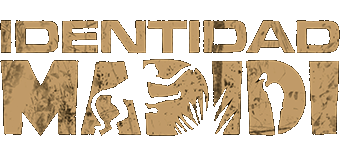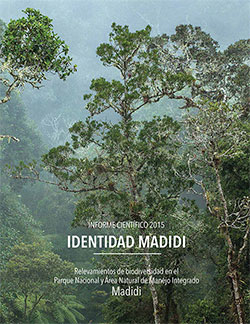The Madidi region was inhabited by various Tacana-speaking cultural groups: Toromonas, Araonas, Ixiamas, Tacanas, Cavinas, Esse Ejjas, Uchupiamonas, Eparamonas and Pamainos. Communities of Leco origin also shared the territory. Hunting was considered a fundamental activity in the material and spiritual development of their culture. They cultivated yucca, peanuts, beans and corn; they fished and collected honey and a great variety of fruits. They used the rivers and trails for their transportation and commercial exchange.
Madidi's archaeological sites reveal the history and cultural heritage of the people who inhabited this region since pre-Hispanic times. Homes, burial sites, cobblestone roads, Amazonian-style pottery, and petroglyphs have all been found in the park. Recently, 46 rock engravings were documented at 10 sites located along the main course of the Beni river, with representations of human figures, animals (monkeys, birds, snakes), anthropomorphic, zoomorphic and abstract shapes (spirals, circles, wavy lines), which are related to the cosmovision of the ancient inhabitants of the region.
Although the Indigenous Peoples' conceptions of the world and their systems of governance and production were affected and transformed throughout history and by contact with other peoples, the essential features of their culture still survive and are expressed in their traditions and worldview.
Currently, 31 indigenous communities of Tacana, Leco and Quechua origin lie within Madidi, with a population of close to 4,000 inhabitants. The protected area overlaps entirely with the Uchupiamonas TCO and partially with the Tacana I, Lecos de Apolo and Lecos de Larecaja TCOs. The Tacana II and Araona TCOs are located in the area's zone of influence. These cultural characteristics are one of Madidi's strengths, as it is part of the ancestral territory of the Tacana and Leco peoples. Their territorial management contribute to the protection of integral forests and the maintenance of vital biological corridors for wildlife. They also revalue traditional knowledge that ensures the sustainable management of natural resources.




 Facebook
Facebook Instagram
Instagram YouTube
YouTube